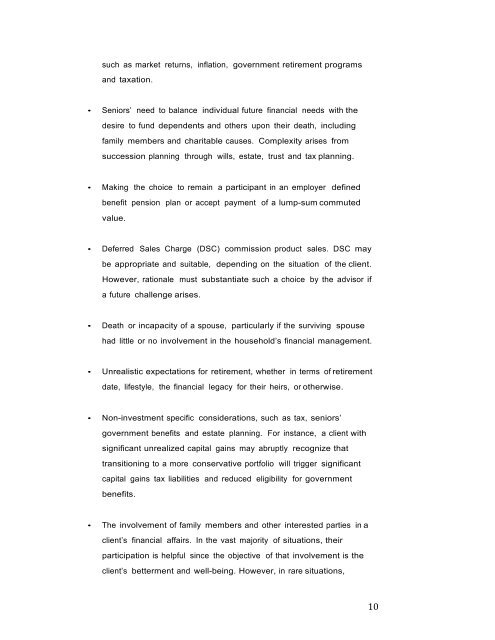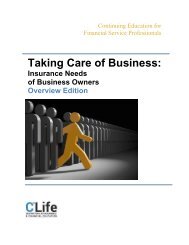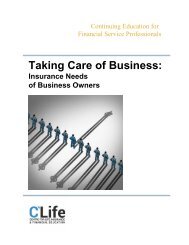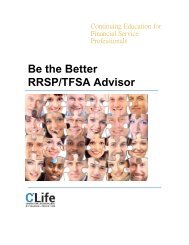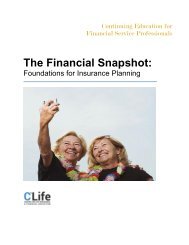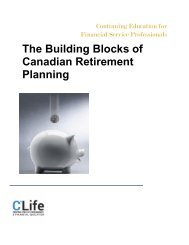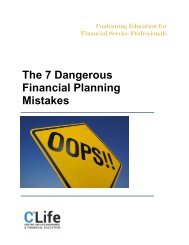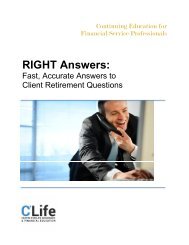Professional Responsibility and Seniors: Advisor Guidance for Ethical Practice
As a CFP professional, you need a professional responsibility CE credit annually. This course provides that credit. The focus is on ethics but you’ll read background on the challenges seniors present and thought-provoking case studies centred on seniors. Each case study draws upon FPSC® Principles and Rules to provide guidance for your responsibilities as a professional.
As a CFP professional, you need a professional responsibility CE credit annually. This course provides that credit. The focus is on ethics but you’ll read background on the challenges seniors present and thought-provoking case studies centred on seniors. Each case study draws upon FPSC® Principles and Rules to provide guidance for your responsibilities as a professional.
Create successful ePaper yourself
Turn your PDF publications into a flip-book with our unique Google optimized e-Paper software.
such as market returns, inflation, government retirement programs<br />
<strong>and</strong> taxation.<br />
• <strong>Seniors</strong>’ need to balance individual future financial needs with the<br />
desire to fund dependents <strong>and</strong> others upon their death, including<br />
family members <strong>and</strong> charitable causes. Complexity arises from<br />
succession planning through wills, estate, trust <strong>and</strong> tax planning.<br />
• Making the choice to remain a participant in an employer defined<br />
benefit pension plan or accept payment of a lump-sum commuted<br />
value.<br />
• Deferred Sales Charge (DSC) commission product sales. DSC may<br />
be appropriate <strong>and</strong> suitable, depending on the situation of the client.<br />
However, rationale must substantiate such a choice by the advisor if<br />
a future challenge arises.<br />
• Death or incapacity of a spouse, particularly if the surviving spouse<br />
had little or no involvement in the household’s financial management.<br />
• Unrealistic expectations <strong>for</strong> retirement, whether in terms of retirement<br />
date, lifestyle, the financial legacy <strong>for</strong> their heirs, or otherwise.<br />
• Non-investment specific considerations, such as tax, seniors’<br />
government benefits <strong>and</strong> estate planning. For instance, a client with<br />
significant unrealized capital gains may abruptly recognize that<br />
transitioning to a more conservative portfolio will trigger significant<br />
capital gains tax liabilities <strong>and</strong> reduced eligibility <strong>for</strong> government<br />
benefits.<br />
• The involvement of family members <strong>and</strong> other interested parties in a<br />
client’s financial affairs. In the vast majority of situations, their<br />
participation is helpful since the objective of that involvement is the<br />
client’s betterment <strong>and</strong> well-being. However, in rare situations,<br />
10


